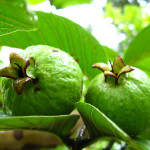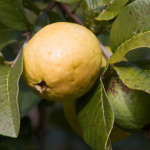
Due to its nutritional contents, Guava is one of the finest fruits that one can consume in large quantities. According to the available statistics, over a million people consume dried guava per week across the globe. Before drying them, it is always a good idea to store them in a cool & dry place. Since it is a tremendously nourishing food, it is often recommended as part of one’s diet plan.
As an inimitable fruit, it boasts of a nice and scintillating flavor. The tastes are natural and are known to perfectly satiate the taste buds. To have a first class experience of the taste, try adding some dried guava to your cereals, salads, yogurt or even your salsa.
Dried guava is known as a super fruit because of its diverse qualities. It is widely consumed in America and Asian countries and is gradually becoming an important aspect of the sub-Saharan diet. Botanically, guava is within the class of myrtaceae. You can use this fruit while preparing desserts such as jellies, candies, preserves, marmalade etc.
The nutritional benefits of dried guavas tend to be higher than that of fresh guavas. They can be seen in a wide range of colors such as blue, red, brown, yellow, but yellow seem to be most popular. Psidium guajava is the scientific name for guava. It aids in the cleaning of the intestines and excretory systems; ensuring proper digestion and excretion.
When guava is ripe and fresh, it can stay up to five days in your refrigerator, but when it is dried, it can stay six months or more. Dried guava retains its sweetness and becomes crispy.
When guava is in the drying process, it may lose some of its appealing colors. However, it can be eaten at all times. Regular consumption of dried guava helps in the maintaining of the required blood vessels, organs, skin, and bones. The compounds have antioxidant properties; which is why they give optimum health benefits. Furthermore, they even protect you from oral cavity and lung cancers.
Explore Articles
 Skin Care with Dried Guava and Its Products
Skin Care with Dried Guava and Its ProductsSkin care is something that worries most people, especially the women. Due to the busy schedules at their office and the household chores, most...
 Why Go For Dried Guava When Fresh Ones Are Available?
Why Go For Dried Guava When Fresh Ones Are Available?This might be a common question that crosses your mind, when thinking of buying the nutritious guava fruit. The guava is a tropical fruit...
 Weight Loss Benefits Of Dried Guava
Weight Loss Benefits Of Dried GuavaMost people are not aware of the quick weight loss benefits of dried guava. With such an effective natural solution available, there is no...
 Dried Guava – Why it is simply the best
Dried Guava – Why it is simply the bestEating dried guava is one of the best things that can ever happen anyone; its nutritional contents are indeed great. You need this fruit...
